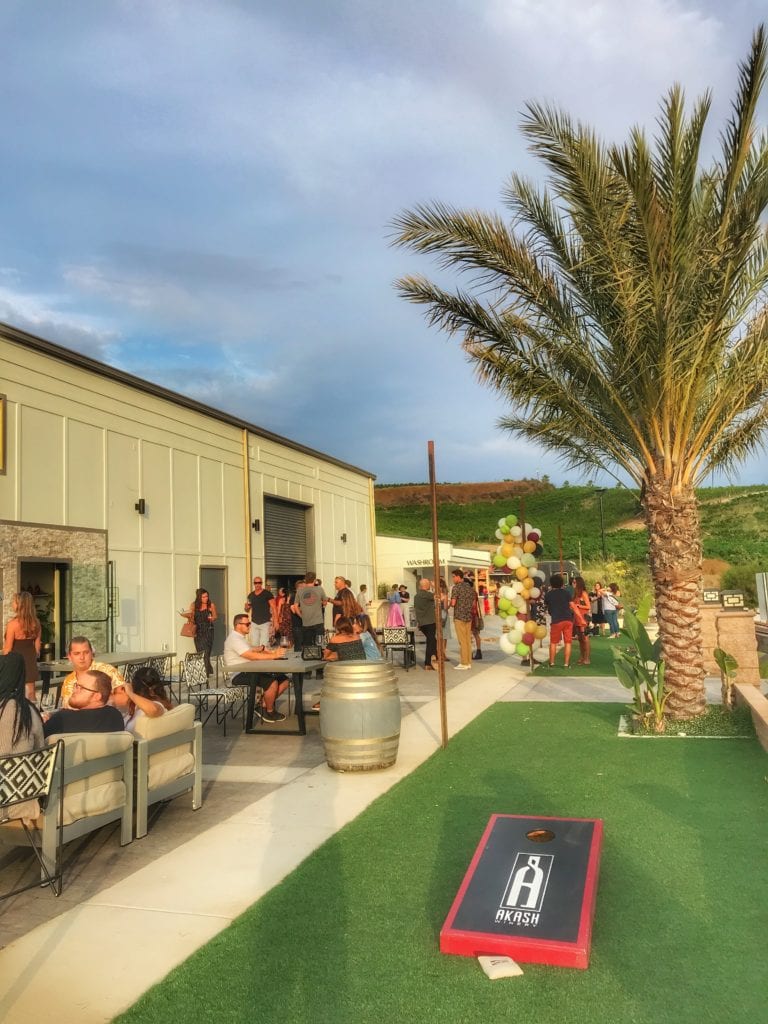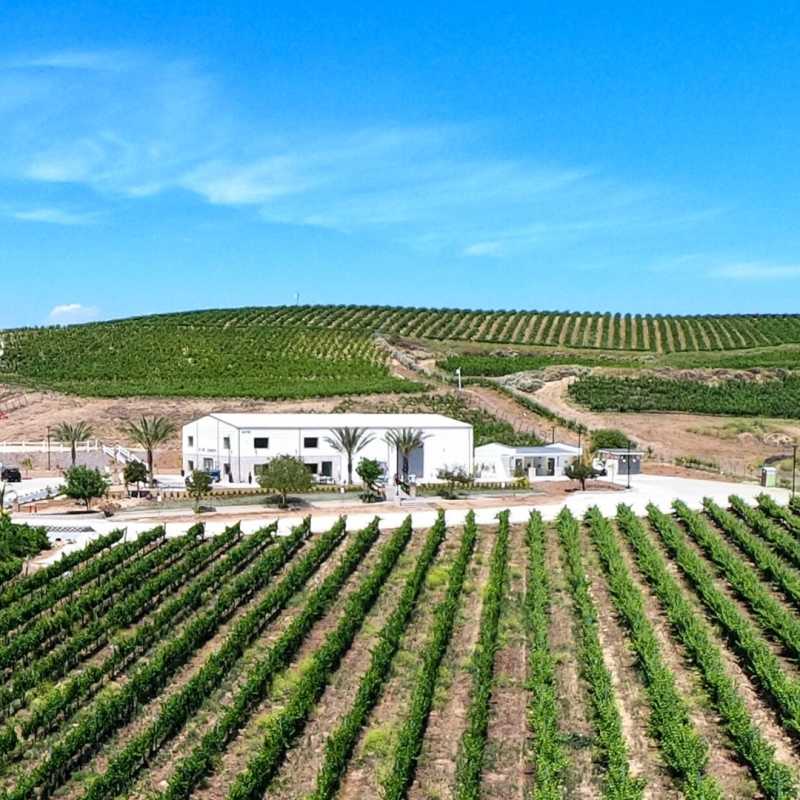Is this esteemed vineyard a significant force in the wine industry? A robust and respected name, this producer consistently delivers high-quality wines.
This specific winery, renowned for its commitment to quality, produces a range of varietals. The winery's wines are often characterized by a distinctive taste profile, reflecting the unique terroir of the region where it's located. This emphasis on quality extends to the entire production process, from grape cultivation to bottling. Examples of the wines produced might include Cabernet Sauvignon, Chardonnay, or Pinot Noir, depending on the location and varietal specialization.
The importance of this winery lies in its contribution to the local wine scene. The consistent production of high-quality wines fosters economic activity and supports local agriculture. The brand's reputation within the industry often leads to positive reviews, driving appreciation for the winery's efforts and impacting consumer choices. This reputation, built over time through consistent quality and customer satisfaction, is integral to the ongoing success of the winery. The historical context in which the winery developed, whether in response to specific market trends, geographical influences, or a particular philosophy, plays a role in the type of wine it produces. The winery likely follows specific practices, whether sustainable or organic, that set it apart.
Moving forward, a deeper exploration of this particular winery's winemaking methods, customer reviews, and potential future ventures will provide a more comprehensive understanding of its place in the wine industry.
Akash Winery
Understanding Akash Winery requires examining key aspects that define its identity and impact.
- Location
- Varietals
- Winemaking
- Reputation
- Sustainability
- Customer Feedback
Akash Winery's location influences the grapes cultivated, impacting taste profiles. Specific varietals chosen reflect a commitment to quality and regional terroir. Sophisticated winemaking techniques likely contribute to the distinctive characteristics of the wines. A positive reputation, built on consistently high-quality products, drives customer loyalty. Adoption of sustainable practices showcases a commitment to environmental responsibility. Meaningful customer feedback provides insights into both strengths and areas for potential improvement, crucial for long-term success. These interconnected elements together create a holistic image for Akash Winery, setting it apart within the wine industry.
1. Location
Geographic location plays a crucial role in shaping the character and quality of wines produced by a winery. The specific terroira combination of soil composition, climate, and topographydirectly impacts the grapes' flavor profiles and yields. Varietals thriving in certain climates might struggle in others. For example, grapes that flourish in a warm, sunny Mediterranean climate might not perform as well in a cooler, more humid region. Similarly, soil types affect nutrient absorption, influencing the grapes' overall composition and ultimately, the resulting wine. The microclimate surrounding a vineyard, including aspects like elevation and proximity to water sources, significantly contribute to the unique characteristics of the wine produced.
Understanding the location's influence on Akash Winery is essential for comprehending the nature of its wines. The specific soil composition and prevailing climate in Akash Winery's region likely dictate the grape varietals suitable for cultivation. The choice of varietals directly influences the wine's taste, aroma, and body. This connection between location and wine quality is readily apparent in many renowned wine regions globally, where specific terroirs are celebrated for producing unique and distinctive wines. For Akash Winery, understanding this connection helps in appreciating the unique nuances of their wines and their place within the broader winemaking landscape.
In summary, the location of Akash Winery is a critical determinant in the characteristics of its wines. The terroir profoundly influences the quality and style of grapes grown and the resulting wines produced. Recognizing this connection helps in evaluating and appreciating the specific attributes of Akash Winery's offerings within the broader context of winemaking regions. The geographical factors dictate the viticultural practices employed, influencing the entire winemaking process, from planting to bottling.
2. Varietals
Understanding the varietals cultivated at Akash Winery is crucial for appreciating its wine production. Grape variety selection directly impacts the wine's taste profile, aroma, and overall character. The choice of varietals reflects the winery's philosophy and the specific terroir it operates within.
- Grape Selection and Terroir
Wine production hinges on the selection of appropriate grape varieties. These choices are often dictated by the specific soil, climate, and microclimates of the vineyard location. Suitable grape varieties yield wines with desired flavors and characteristics. Akash Winery's selection presumably aligns with the regional terroir, potentially emphasizing grapes that thrive in the specific environment and produce wines with unique regional expressions.
- Flavor Profiles and Regional Characteristics
Different grape varietals possess distinct flavor profiles. Cabernet Sauvignon, for instance, often displays dark fruit notes, while Chardonnay typically exhibits notes of citrus or fruit. The specific varietals chosen by Akash Winery will determine the overall range of flavors present in their wines. The use of specific grape varieties is a key indicator of the winery's style and identity within the winemaking world.
- Varietal Blending and Complexity
Blending different varietals can create more complex and nuanced wines. The blending techniques employed by Akash Winery likely contribute to the complexity and depth of its wines. By combining different varietals, producers can achieve specific taste profiles. Blending is a common practice that significantly contributes to the wide array of wines found in the market.
- Sustainability and Environmental Impact
The selection of varietals might also reflect sustainable viticultural practices. Some varietals may be better suited for specific soil conditions or farming methods. This may reflect a conscious effort to minimize environmental impact and contribute to a more sustainable wine production approach, aligning with current trends in the wine industry. Considering environmental factors when choosing varietals ensures a balanced approach between quality and sustainability.
In conclusion, the grape varietals chosen by Akash Winery are a key element of their winemaking philosophy and identity. The interplay between grape variety, terroir, and blending techniques all contribute to the unique characteristics of their wines. Understanding these varietal choices provides insights into the approach and priorities of Akash Winery, offering a glimpse into the overall ethos of this wine producer. These factors offer crucial insights into the winemaking process and the quality of the final product.
3. Winemaking
Winemaking practices at Akash Winery are integral to the final product's quality and character. The techniques employed in the vineyard and winery significantly influence the taste, aroma, and overall sensory experience of the wine. Understanding these practices provides valuable insight into the winemaking philosophy and the identity of the winery.
- Grape Harvesting and Handling
Efficient and careful grape harvesting is crucial. Appropriate timing, gentle handling, and sanitation throughout the process prevent damage and maintain grape integrity. This impacts the wine's initial quality and subsequent fermentation. At Akash Winery, optimal grape handling practices are likely paramount to their commitment to quality, ensuring the grapes arrive in pristine condition for processing. Poor practices can lead to undesirable flavors and issues with clarity.
- Fermentation Techniques
Fermentation, a pivotal stage, transforms grape juice into wine. The style of fermentationwhether traditional or innovativedirectly impacts the wine's final characteristics. The specific yeast strains and temperatures used during fermentation play a key role in flavor development and the complexity of the final product. The methods employed by Akash Winery reflect their desired style and potential for unique qualities in the finished product.
- Aging and Maturation
Appropriate aging and maturation are crucial steps that contribute to the development of a complex and robust wine. The length and type of aging, be it in oak barrels or other containers, influence the wine's taste, color, and texture. Careful monitoring during aging allows the winemaker to ensure the wine evolves in the desired direction. The approach taken at Akash Winery will significantly influence the final product's maturity and overall profile.
- Bottling and Packaging
The bottling and packaging processes are critical to preserve the quality and protect the wine throughout its life. The type of bottle, cork, or closure chosen directly affects the wine's preservation and presentation. The winery's choice of bottling and packaging reflects their brand identity and commitment to quality. Proper sealing ensures the wine remains stable and retains its intended characteristics.
In summary, the winemaking process at Akash Winery encompasses a range of critical steps, each influencing the final product. From harvesting and handling grapes to fermentation, aging, and bottling, meticulous attention to detail at each stage ensures the quality and unique character of the wine. Understanding the winemaking techniques employed provides a clearer picture of Akash Winery's approach to quality and identity in the wine industry.
4. Reputation
A winery's reputation is a critical asset, significantly impacting its success and perceived value. For Akash Winery, reputation is a multifaceted component, affecting consumer perception, market positioning, and overall profitability. A positive reputation, built upon consistent quality and customer satisfaction, drives sales, attracts investment, and fosters a strong brand identity. Conversely, a negative reputation can lead to decreased sales, difficulty attracting investment, and a tarnished brand image, emphasizing the importance of maintaining high standards.
The practical significance of a strong reputation for Akash Winery extends beyond immediate sales figures. A positive reputation acts as a form of pre-validation, reducing consumer risk and encouraging trust. Positive reviews, both online and from industry professionals, contribute to a positive perception. Strong recommendations often lead to repeat customers and word-of-mouth referrals, fostering organic growth and establishing a consistent market presence. Consider successful wineries globally: their reputations, consistently upheld through quality and ethical practices, have become powerful brand symbols, influencing consumer preferences and pricing. This highlights a strong correlation between reputation and a wine brand's market value.
In conclusion, Akash Winery's reputation is a cornerstone of its long-term success. A positive reputation is a significant driver for sales, attracting both consumers and potential investors. Maintaining consistent quality and addressing customer feedback are essential components in cultivating a positive brand image, ensuring the winery's ongoing success and establishing its place within the competitive wine industry. Ultimately, a robust reputation translates to sustained growth, profitability, and a strong brand identity, highlighting the crucial link between reputation and a winery's market value and future prospects.
5. Sustainability
Sustainability in wine production, encompassing environmental, social, and economic factors, is increasingly important. For a winery like Akash, this involves responsible resource management, minimizing environmental impact, and ensuring fair labor practices throughout the supply chain. A winery's commitment to sustainability isn't merely a trend; it's a fundamental aspect of long-term viability. Examples of sustainable practices in wine production include utilizing water-efficient irrigation techniques, implementing organic farming methods, minimizing waste during the winemaking process, and supporting local communities.
The practical significance of understanding sustainability's role at Akash Winery is multifaceted. Positive environmental practices can attract environmentally conscious consumers, fostering brand loyalty. Organic and sustainable farming methods can result in higher-quality grapes, enhancing wine characteristics. Ethical sourcing of materials and fair labor practices can build a positive brand image and potentially improve the winery's supply chain resilience. Furthermore, proactive sustainability measures can mitigate risks associated with changing climate conditions, supporting long-term wine production. A company's environmental performance is becoming a crucial factor in consumer decisions and investor confidence, and Akash Winery would benefit from highlighting its commitment in these areas.
In conclusion, sustainability is no longer a peripheral concern for wineries like Akash. It is central to a winery's long-term success. Understanding the connection between sustainability and wine production allows for proactive measures to address environmental concerns, build positive consumer perception, and strengthen the overall viability of the business. By integrating sustainability into every aspect of their operations, Akash Winery can ensure long-term profitability and contribute positively to the industry as a whole. The growing demand for sustainable products creates an opportunity for businesses that are proactively addressing these concerns.
6. Customer Feedback
Customer feedback is a vital component in a winery's success, directly impacting various aspects of its operations, including quality control, marketing strategies, and overall brand perception. For Akash Winery, understanding and actively responding to customer feedback is crucial for maintaining a competitive edge and achieving long-term growth. Positive reviews, for instance, can lead to increased sales and a stronger brand reputation, while negative feedback can highlight areas needing improvement in wine production, service, or customer experience.
Analyzing customer feedback provides valuable insights into consumer preferences. Understanding which aspects of Akash Winery's wines, service, or overall experience resonate most with customers allows the winery to tailor its offerings more effectively. For example, if customer reviews consistently praise the winery's organic farming practices, further highlighting these aspects in marketing materials and emphasizing their positive impact on wine quality can attract a specific niche market. Conversely, frequent complaints about corked bottles or slow service can identify areas needing immediate attention to ensure a positive experience for all customers. Comparative analysis of customer feedback with competitor reviews provides further insight into market trends and areas where Akash Winery can differentiate itself favorably.
In conclusion, customer feedback is indispensable for wineries like Akash. It provides valuable data for strategic decision-making, enabling wineries to adapt to changing consumer preferences and market trends. The practical application of this understanding involves actively seeking and analyzing customer feedback through various channels (reviews, surveys, social media). Successful wineries consistently prioritize customer feedback as a critical source of data to understand market demand and adapt effectively to ensure long-term success. Ignoring customer feedback can lead to missed opportunities for improvement and potentially damage the winery's reputation in the long term.
Frequently Asked Questions (Akash Winery)
This section addresses common inquiries about Akash Winery, providing clear and concise answers to enhance understanding of the winery's operations and products.
Question 1: What distinguishes Akash Winery's wines from other producers?
Akash Winery's commitment to quality is evident in every stage of production, from grape selection to bottling. The winery prioritizes using varietals well-suited to the local terroir, resulting in wines with distinct flavor profiles. Specific winemaking techniques and attention to detail further contribute to the unique character of Akash wines.
Question 2: Are Akash Winery's wines organic or sustainable?
Information on the specific sustainability practices employed by Akash Winery is not readily available in public sources. Detailed clarification regarding their adherence to organic certification or sustainable farming practices requires direct inquiry to the winery.
Question 3: Where can I purchase Akash Winery's products?
Information on the specific distribution channels and retail partners for Akash Winery's products is not available from public sources. Direct inquiries with the winery or online retailers specializing in wine sales may provide access to purchase options.
Question 4: What is Akash Winery's history?
Detailed information regarding Akash Winery's history, including its founding date, key milestones, or significant events, is not readily available in public sources. Direct contact with the winery or industry publications may provide greater historical context.
Question 5: What are the typical price ranges for Akash Winery's wines?
Specific pricing information is not readily available for Akash Winery's wines. Checking the winery's website or contacting retailers may provide access to current pricing details, though general pricing variations for the wine types may be anticipated.
Understanding Akash Winery requires further exploration. These FAQs offer preliminary insights, encouraging interested parties to seek more comprehensive information from official channels. Further details about the winery and its wines are advised to be verified directly through official sources.
Transitioning to the next section, we will delve deeper into the market analysis and future trends in the wine industry.
Conclusion
Akash Winery's profile, as presented in this exploration, reveals a complex interplay of factors shaping its place in the wine industry. Location dictates varietal selection, impacting the wine's character. Winemaking techniques influence the final product, and a strong reputation is crucial for sustained success. Sustainability practices and responsive customer feedback are increasingly crucial for long-term viability. While specific details remain elusive, a clear picture emerges of a winery actively navigating a competitive market, striving for quality and acknowledging the importance of market responsiveness.
The future success of Akash Winery hinges on its capacity to adapt to evolving consumer preferences and industry trends. Maintaining high-quality standards, actively seeking customer feedback, and understanding the nuanced role of sustainability will be key. The market for premium wines remains competitive; maintaining or improving reputation and adapting to market forces will be essential for Akash Winery to thrive. Further investigation into specifics, including detailed financial information or market share data, is warranted for a more comprehensive evaluation.


